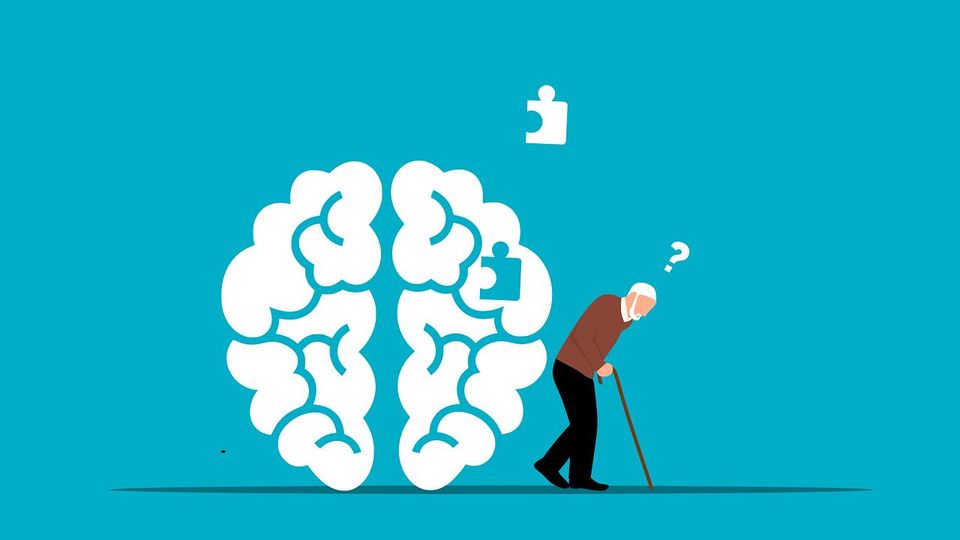
Dementia is several diseases that affect a person’s cognitive function. Cognitive function includes the way a person remembers information, reasoning, problem-solving and other thinking abilities. Dementia can cause a great degree of disability as it affects a person’s ability to perform daily life routine and at most times needing assistance from others. It is estimated that more than 55 million people are affected by dementia. Medicine such as Exelon patch has been used to help patients with dementia to cope with their life.
Dementia at a glance is usually associated with Alzheimer’s disease but it is more than that. Dementia is a general term used to describe a condition of a person with an impaired severe cognitive function. About one-third of the population aged 85 and above is affected by dementia. Dementia should not be seen as part of a normal ageing process even statistics shows dementia is common in old people. Dementia can be caused by a variety of diseases and it occurs as a result of damages or changes to the brain.
The most common cause of dementia is Alzheimer’s disease. It is caused by the abnormal build-up proteins of amyloid and tau. These build-up amyloids around the brain cells causing plaques while tau form “tangles” within the brain cells. Other causes of dementia include vascular dementia that occurs due to microscopic bleeding or blood vessel blockage in the brain, Parkinson’s disease, dementia with Lewy bodies, frontotemporal dementia that affect those aged 45 to 65 years old and severe head injury. Dementia could also be inherited but this is rare and is often only suspected when a person aged 5o and below presented with dementia symptoms.
Dementia itself can be caused by many causes. This leads to the variety of symptoms which may make a person not realise a person they know or themselves is experiencing dementia. However, knowing common dementia symptoms should at least give early clues that a person might be experiencing dementia. Common symptoms include short-term memory, difficulty to perform the usual daily task that a person is able to do before, difficulty concentrating, struggling to keep up with conversation, mood changes and often lose track of time or place. Any of these symptoms often be presented as mild ones but as it progresses along time, it will get worst and lead to dementia.
Hence, when a person experiences any of the symptoms as mentioned before even mildly, he or she is not immediately labelled with dementia. Instead, this is known as “mild cognitive impairment” or MCI. People with MCI may or may not develop dementia. This is why dementia is not a natural part of ageing because MCI may stay the same and not progress to the worst. The best way to understand if a person has MCI or dementia is for them to get checked by doctors.
Currently, there is no cure for dementia. Treatments available aim to slow down the dementia progress and to improve symptoms. In general, treatment depends on the cause of dementia. Finding the cause of dementia is not easy as there is no one test that can directly determine the cause but doctors usually evaluate the dementia symptoms, laboratory test, brain imaging test and the characteristics of cognitive function disability to find the cause. Medications such as cholinesterase inhibitors like donepezil and NMDA receptor antagonists like memantine are prescribed by doctors. In case of vascular dementia, antihypertensive drugs are proven to be beneficial. Antidepressant may be prescribed in those with dementia and having depression symptoms.
Treatment of dementia is more than taking medication. This includes patients taking extra steps to maintain a healthy lifestyle consisting of practising good eating habits and being physically active. Patients with dementia should also take part in activities that help to improve their cognitive function such as having specific hobbies. It is best for patients with dementia to stay socially active by keeping in touch with people around them and engage in social activities. Regular medical check-up should be a must for patients.
In essence, dementia does not cause a person to have an impaired cognitive function but also affects a person’s ability to live independently in their daily life. Dementia can progress rapidly to a severe one especially when it is not treated early. Although there is no treatment that can cure dementia, treatments available can greatly help patients to have a fulfilling life. Dementia not only affects the patient but also people around them. Both patient and caretaker should understand how dementia affects their life so that they can take proactive steps to tackle it and provide a good life for both sides. It is important to treat dementia as dementia itself is the 7th leading cause of death. Dementia also plays a major role in causing disability and dependency. If a person already has symptoms associated with dementia, they should discuss with a healthcare professional on what to do next and treatment plan.





